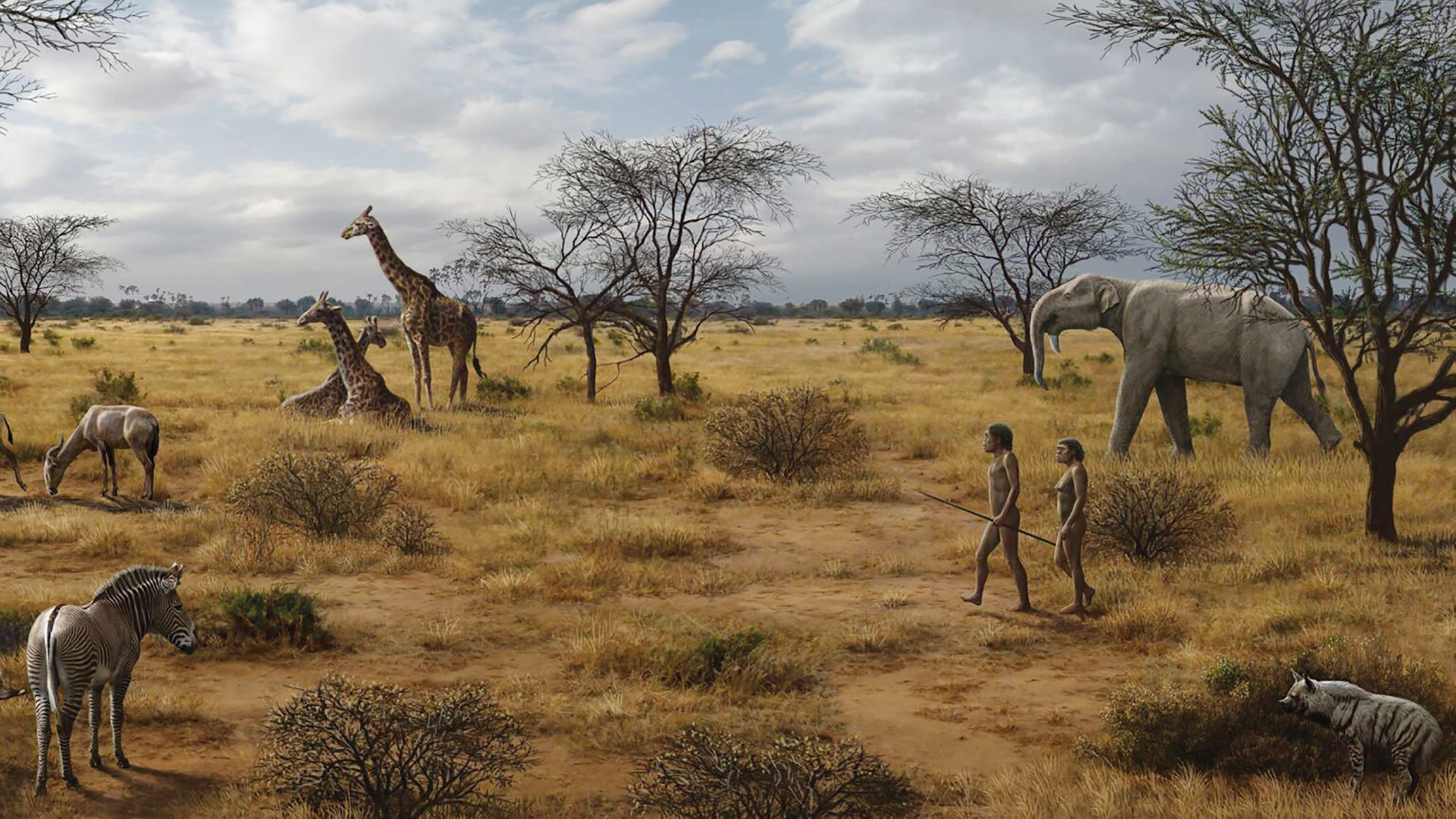The shift toward human-like traits, such as large brains, is often linked to more meat eating in human ancestors. A new study published in January 2022 in the Proceedings of the National Academy of Sciences, however, says the evidence doesn’t necessarily support the “meat made us human” theory.
Large brains first appear in Homo erectus nearly 2 million years ago. Though the amount of evidence of meat eating rises sharply after the appearance of H. erectus, the study authors argue that this fact can largely be explained by sampling bias—meaning a greater amount of research has been done on sites associated with this time period.
“Generations of paleoanthropologists have gone to famously well-preserved sites in places like Olduvai Gorge looking for—and finding—breathtaking direct evidence of early humans eating meat,” says lead study author W. Andrew Barr, assistant professor of anthropology at the George Washington University.
“We took a broader view of the archaeological record, synthesizing and analyzing all of the existing evidence for hominin meat consumption in eastern Africa,” explains study contributor J. Tyler Faith, curator of archaeology at the Natural History Museum of Utah and associate professor of anthropology at the U. The researchers found that, when accounting for variation in sampling effort over time, there is no meaningful increase in the relative amount of meat-eating evidence after H. erectus appears.
The evolution of human-like traits could be explained by other theories, such as the use of fire to cook food, which increases nutrient availability. But the study authors say more research needs to be done.




Comments
Comments are moderated, so there may be a slight delay. Those that are off-topic or deemed inappropriate may not be posted. Your email address will not be published. Required fields are marked with an asterisk (*).